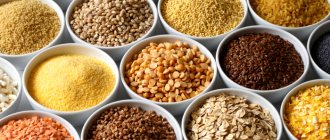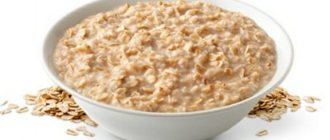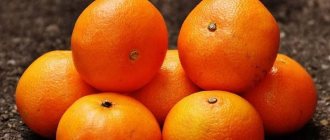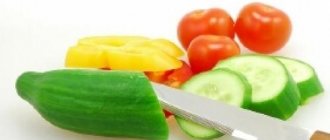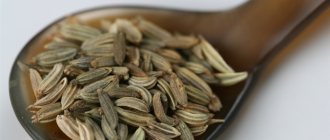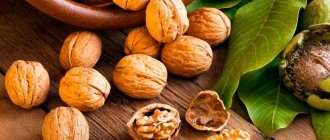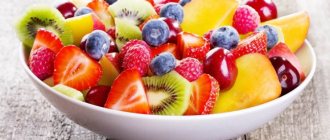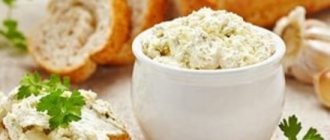Why are fruits effective in weight loss?
When eating fruits for the purpose of losing weight, two components come into play in the fight against excess weight: fructose and fiber.
Fructose
Fructose is a sugar found in fruits. This substance makes the fruits sweet and tasty. Fructose has two undoubted advantages for those who want to lose weight:
- low glycemic index, which is especially important for diabetics;
- Reduced calorie content compared to regular sugar.
True, fructose does not saturate the body. When consuming it, you do not feel full. Therefore, you can overeat unnoticed and gain extra calories. Try to eat fruits that are low in fructose and high in fiber while losing weight.
Cellulose
The fiber contained in fruits brings great benefits to the body:
- gives a feeling of satiety in which you won’t be able to eat too much;
- cleanses the intestines of harmful accumulations;
- is not converted into energy, therefore, the calories eaten will not be deposited on the sides.
Avocados and pomegranates contain the most fiber. Pears, kiwis, apples, citrus fruits, pineapples, peaches and bananas have average amounts of this substance.
How to include low-sugar fruits in your diet
Fruits can be added to every meal.
Regardless of sugar content, fruits should be part of a balanced and healthy diet.
Benefits of increasing a person's daily fruit intake include:
- weight loss or maintaining optimal weight
- getting essential vitamins, minerals and fiber
- reducing the risk of cancer and other diseases
In fact, the American Cancer Society recommends eating about 2 ½ cups of fruits and vegetables daily.
A person can include low-sugar fruits in their diet at every meal:
Breakfast
People who usually eat cereals should choose cereals without added sugar. Try adding chopped berries or peaches on top. It's also good to eat a handful of berries with plain low-fat yogurt.
Instead of drinking high-sugar fruit juice, a refreshing alternative is to squeeze the juice of half a lemon or lime into sparkling water.
Dinner and supper
Even a savory salad can include low-sugar fruit elements. Try using lemon or lime juice as a dressing or slicing an avocado on top. Orange slices and berries are also great for salad dressings.
Whole fruits are a great alternative to processed desserts. Low-sugar fruits can be eaten with plain yogurt or made into a fruit salad, adding a small amount of honey if necessary.
Snacks
Low-sugar fruits can be a great snack alternative. A person can make it easier to snack on fruit by cutting large fruits, such as melons, into small pieces and storing them in the refrigerator when needed.
Sources
- https://eda-land.ru/frukty/kakie-samye-sladkie/
- https://DiabetSahar.ru/diets/frukty-yagody-i-ovoschi-s-nizkim-soderzhaniem-sahara.html
- https://ZarMed22.ru/lechenie/produkty-soderzhashchie-sahar-tablica.html
- https://greenvegan.ru/zdorove/frukty-s-nizkim-soderzhaniem-sakhara/
- https://42-ds.ru/produkty-i-dieta/soderzhanie-sahara-v-yablokah.html
- https://sovets.net/21522-frukty-agody-i-citrusovye-s-nizkim-soderzaniem-sahara.html
- https://fr-dc.ru/dieta/frukty-s-nizkim-soderzhaniem-sahara-proverte-svoj-raczion
[collapse]
Rules of use
In order for fruits to help with weight loss, you must adhere to the following rules:
- limit the daily intake of fruits to 600-800 g;
- eat fruits in small portions, rather than eating everything at once;
- give preference only to fresh fruits, since heat treatment removes nutritional elements from fruits and reduces their beneficial properties;
- do not eat fruits after a heavy meal, wait at least half an hour;
- do not get carried away with eating fruits at night - this can only be done in limited quantities;
- do not mix fruits with other dishes;
- consume citrus fruits in the first half of the day – from 6 to 12 o’clock;
- Do not eat sour fruits on an empty stomach.
The greatest benefit will be obtained if you eat fruit for breakfast, before lunch (about 30-40 minutes before) and as a light snack.
What fruits help you lose weight
Citrus fruits are considered the leaders in fat burning. These fruits contain flavonoids that prevent the formation of deposits. In addition, they are considered good helpers in normalizing the metabolic process. The most common fruits for weight loss and fat removal: orange, grapefruit, tangerine. The daily norm is no more than 2 pieces per day. You can cut the oranges into slices and add natural yoghurt for a light dinner for the evening.
In addition to citrus fruits, any yellow fruit is rich in flavonoids. For example, peaches, apricots, persimmons, pineapples. You can add mango to your diet. This exotic fruit successfully copes with extra pounds and helps lower cholesterol levels. A person can eat a couple of pieces per day, then in ten days he will lose up to 5 kg. It is undesirable to include grapes and bananas in your diet. The content of dried fruits in the diet should also be kept to a minimum.
What time of day is best to eat fruit?
If you are planning to adhere to a weight loss method, you should know what time is best to eat fruit in order to achieve a positive result? Many nutritionists recommend eating fruits and berries one hour before lunch on an empty stomach. It is better to start the morning with citrus fruits: half an hour before breakfast you can drink orange juice or eat a tangerine. Apples should be consumed before and after lunch.
All other fruits can be eaten a few minutes before meals. Then the fruits will already be partially digested and will greatly increase your appetite. If you need to eat fruit for dessert, it is better to wait 30 minutes after eating and only then eat. Sweet fruits should be completely excluded from the diet. You should not mix fruits with other dishes, as this can lead to poor digestion of food, gas formation and bloating.
TOP 10 best fruits for weight loss
Citrus fruits (grapefruits, oranges) are great for burning weight. They contain special substances - flavonoids, which prevent the formation of fatty deposits. In addition, they participate in the normalization of the metabolic process.
Yellow fruits (for example, pineapples) have the ability to break down fat. Let's take a closer look at these and other fruits.
Grapefruit
This fruit is considered one of the most useful fruits for weight loss. It contains a lot of fiber and is capable of breaking down fat well. What other benefits does it have for the body?
- contains a small amount of calories;
- removes toxins and excess fluid from the body;
- improves metabolism and intestinal function;
- activates fat burning;
- improves food absorption and digestion process.
This fruit should not be consumed during exacerbation of stomach diseases (ulcers, gastritis). And it can be eaten on an empty stomach only by those who have normal stomach acidity.
Orange
This fruit “knows how” to burn fat. It is rich in beneficial vitamins and has a great effect on metabolic processes in the body. You can even replace high-calorie desserts with orange.
Do not replace natural fruits with juice. The fact is that fruits have much fewer calories and more fiber, which is not found in juice at all.
Oranges can be eaten with natural yogurt. Just cut the fruit into slices and add yogurt - a light dinner is ready.
A pineapple
Pineapple is one of the recommended fruits for those who are struggling with excess weight. What are its benefits for the body:
- dulls the feeling of hunger;
- stimulates fat burning;
- improves the process of digestion of food - helps to absorb proteins;
- gives a feeling of satiety;
- contains few calories, high fiber and moderate amounts of fructose.
To lose weight, eat one slice of pineapple before meals. Do not eat the fruit if you have high stomach acidity, ulcers or gastritis.
Pomelo
Pomelo is an exotic citrus fruit that also provides certain benefits to the body when losing weight:
- saturates well;
- removes harmful substances from the body;
- promotes the breakdown of fats and carbohydrates;
- improves metabolic processes.
The fruit is low in calories and contains many useful microelements and substances. It is best eaten raw with membranes. But you can also remove the partitions and add the fruit itself to a salad or smoothie for weight loss.
Pomelo should not be eaten if you have allergic reactions to citrus fruits or with increased stomach acidity. You should stop using it if you have stomach and kidney problems. An overdose of fruit can cause constipation and urolithiasis.
Pear
Pear is an excellent source of fiber that is beneficial for the body. In addition, she:
- perfectly removes waste and toxins from the body;
- has a positive effect on intestinal function;
- keeps you feeling full for a long time.
In addition to fiber, these fruits contain a lot of fructose. Therefore, fruits should be consumed in limited quantities and only fresh. In addition, pears are fortified and are not recommended to be eaten on an empty stomach. It is better to do this 20 minutes after eating.
Apple
Apples are low in calories and have a good amount of fiber. True, there is also enough fructose there. When consuming these fruits, try to choose sour varieties rather than sweet ones.
Apples burn fat well, but only if consumed correctly. These fruits should not be abused. For the purpose of losing weight, you can eat baked apples.
Lemon
This fruit helps break down fats and cleanse the body of harmful substances. Improves digestion and has a natural diuretic effect.
People who have a stomach problem should be very careful when consuming lemon. It’s better to give it up completely.
Kiwi
Kiwi is very useful for people who want to lose weight. He:
- helps normalize digestion;
- dulls the feeling of hunger;
- relieves the feeling of heaviness after eating;
- rich in fiber, low in calories.
You should not eat kiwi every day in large quantities. Several times a week, you can replace this fruit with an apple or orange.
Watermelon
The calorie content of watermelon is very small, in addition, it helps to relax the intestines and empty them. But at the same time, watermelon does not saturate the body at all, which is why it is so easy to overeat.
If you eat watermelon on a diet, eat it on its own, without bread. Otherwise, all efforts will be in vain.
Avocado
Avocados should be consumed with caution. This is a very high-calorie, albeit healthy fruit. It contains a lot of useful substances necessary for the body. It contains a lot of fiber, so it can be consumed while on a diet, but no more than once a week.
general information
What fruits are low-calorie?
In dietetics, low-calorie foods are those that have no more than 100 kcal per 100 g of weight. From this position, 90% of all fruits can be classified in this category. Those whose indicators exceed the specified value can be counted on one hand: avocado (170 kcal), green bananas (137), knistel (134), durian (147), ackee (151). So it’s difficult to make a wrong choice.
On the other hand, if we take the bulk of fruits, the calorie content of which does not exceed 100 kcal, several more groups can be distinguished among them:
- the lowest calorie (up to 30 kcal);
- just low-calorie (30-70 kcal);
- critically low-calorie (70-99 kcal).
Some may be interested to know that some nutritionists do not consider the latter group of fruits to be low in calories.
This article adheres to the generally accepted concept in dietetics and the system of proper nutrition that low-calorie fruits are fruits that contain no more than 100 kcal per 100 g.
Which ones to choose
By calorie content
In fact, all three categories are suitable for a diet according to the rules of PP and for weight loss. However, situations may arise when every ten calories matters when creating a menu. This happens especially often when following a diet, when this level is so minimal that it is difficult to choose the appropriate products. In this case, the lowest-calorie fruits will help out.
By sweetness
When losing weight, it is often not recommended to indulge in grapes, bananas and persimmons, as they are too sweet. Although, on the other hand, there are even diets based on these products, and when consumed correctly they do not contribute to weight gain.
By glycemic index
If you have diabetes and excess weight, you should pay attention not only to calorie content, but also to the glycemic index. Appetite and the speed of digestion of carbohydrates depend on this indicator. For example, watermelon is as low in calories as possible, but its GI is off the charts and amounts to 75 units. Melon, papaya, and pineapples are also at risk according to this criterion.
Many people know that low-calorie fruits in canned or any other form other than fresh cease to be so. When preserved, they are processed and sugar is added to them. So their benefits also decrease.
You can view the GI table for fruits.
How harmful is fructose?
Recently, fruits have been increasingly criticized for the fact that they contain a lot of fructose, which is both harmful to health and interferes with weight loss. In fact, nutritionists actively refute this point of view. They remind you that compared to the amount of vitamins, minerals, amino acids and antioxidants that a person gets from eating just one fruit, the amount of sugar consumed is practically irrelevant. All of it is spent on producing useful energy, and not storing fat. The body is perfectly adapted to absorb the doses of fructose that we get from fruits.
How much to eat per day
Daily intake of low-calorie fruits:
- for men with PP - 300-400 g;
- for men when losing weight - 200-300 g;
- for women with PP - 200-300 g;
- for women when losing weight - 100-200 g;
- for children - 200-300 g;
- for active sports – up to 450 g.
However, in all these cases, the determining factor is the calorie content. For example, you can eat more grapefruits and apples, since their calorie content is minimal. But with bananas and pomegranates you should be more careful and limit the serving size somewhat.
Need to quickly lose a couple of kilos? We suggest having a fasting day with fruit. Read recommendations and tips for carrying it out.
About tropical exotica
Along with those fruits that are familiar to us and form the basis of our daily diet, a large number of exotic ones have appeared in stores. There is an opinion that it is useful to include in food only those that grow in the area where you live. However, in this case, you will have to give up both bananas and citrus fruits, which simply do not ripen in cold zones.
Therefore, recently, even experts increasingly recommend expanding the diet of fruits as an inexhaustible source of vitamins. Moreover, lychees, mangosteen, carambola, and other tropical exotics have appeared in supermarkets. And for those who love to travel, it would be a shame not to try these wonders. Moreover, many of them are included in the list of the lowest calorie ones and even top them. The only warning is to study the information on how to eat them correctly, and start with minimal doses to avoid allergies and intestinal disorders.
Advantages and disadvantages of a fruit diet
A fruit diet should be treated with caution. The same fruit can have a beneficial effect in small doses and cause great harm if you overeat it. It is important to properly distribute the consumption of fruits throughout the day, as well as control their quantity.
Advantages of a fruit diet:
- easy to carry;
- beneficial substances enter the body;
- no need to prepare complex dishes;
- depending on the specific diet, you can lose from 3 to 7 kg in a week.
The disadvantages of losing weight with fruit are usually associated with overeating:
- Blood sugar levels increase – fructose begins to promote the deposition of sebum;
- the number of calories eaten increases due to the uncontrolled absorption of certain fruits;
- Protein starvation occurs if you eat only fruit for more than 2 weeks.
Alcohol
Another pleasure on a summer vacation can be dangerous. Everyone knows that alcohol abuse can harm health and sometimes life at any time of the year, but in the hot summer these risks increase significantly. According to statistics, about 40% of deaths on water occur due to alcohol intoxication. Heat, like alcohol, leads to increased sweating, which causes us to lose electrolytes and water. This is a path to disruption of water-salt balance and an increased risk of thrombosis in blood vessels. Ethanol reduces the secretion of the hormone vasopressin, which increases sweating and water-salt loss. Ethanol reduces blood glucose and dilates peripheral blood vessels, which is fraught with fluctuations in blood pressure and heart rhythm disturbances.
Drinking alcohol in hot weather increases the risk of sunstroke and heatstroke. This is why you should drink wisely, realistically assessing all the risks:
- 250 ml of wine leads to the loss of 500 ml of water within 2-3 hours, so you need to adjust your fluid intake
- choose light alcoholic drinks, diluted drinks or cocktails for relaxation
- It is better to relax in the evening hours or while in the shade
- Avoid drinking strong tea, coffee, sugary drinks and energy drinks
- Compensate for water losses with non-carbonated mineral water with the addition of a slice of lemon.
The most important thing is to adhere to moderation in everything, then your vacation will truly bring only pleasure and health benefits.
Fruit calorie table
When choosing fruits for weight loss, focus on their calorie content. The table shows the values of this parameter for fruits.
| Fruit name | Kilocalories per 100 g of product |
| Grapefruit | 35 |
| Mandarin | 43 |
| Orange | 43 |
| Peach | 45 |
| Apricot | 44 |
| A pineapple | 50 |
| Pomelo | 38 |
| Papaya | 43 |
| Apple (sour/sweet) | 38/48 |
| Pear | 47 |
| Cherry | 60/52 |
| Lemon | 34 |
| Kiwi | 48 |
| Watermelon | 28 |
| Pomegranate | 72 |
| Avocado | 210 |
| Grape | 72 |
| Banana | 96 |
Answers to popular questions
Is it possible to eat fruit before bed?
Nutritionists advise eating fruit no later than an hour before bedtime. Eat an apple or grapefruit if you are feeling hungry. But under no circumstances eat banana or avocado.
Are candied fruits healthy?
Candied fruits are small candied pieces of berries or fruits. This is a fairly high-calorie product, although rich in fiber.
Due to their calorie content, candied fruits are not advisable for those who are on a diet. The benefits of these sweets for weight loss are not so high. If you want to pamper yourself, then you can eat 30-40 g of candied fruits in the first half of the day, but no more.
What fruits should you not eat?
When following a diet, you should avoid eating the following fruits:
- banana – it contains a lot of fructose and calories;
- grapes - low in fiber and fructose (in addition, they are easy to overeat);
- dried fruits - these include raisins, dates, figs (lots of calories and sugar);
- nuts are very high in calories, although they are beneficial for the body.
What vegetables to combine with fruits?
In addition to fruits, some vegetables are useful for people losing weight, which can be combined in salads along with the fruits discussed:
- cabbage (any kind) – this vegetable contains many vitamins, carbohydrates, no fat and few calories;
- beets – has a mild laxative effect, helps cleanse the body of toxins, saturates it with beneficial acids;
- cucumbers are a low-calorie product filled with fiber;
- zucchini - remove excess fluid from the body, contain only 16 calories and a lot of useful substances per 100 g;
- onions, celery are low-calorie vegetables that stimulate intestinal function and provide the body with necessary vitamins.
Benefits of fruits
Everyone knows that fruit crops are of great benefit to the human body, saturating it with useful vitamins, amino acids and minerals. Moreover, many fruits have a positive effect on the cardiovascular system and strengthen human immunity.
The benefits of fruits when consumed rationally are obvious. You should eat fresh and ripe fruits, and also buy them in stores that sell high-quality products.
The harm of sugar
Modern medicine successfully treats diseases that were considered incurable 100 years ago. At the same time, she remains powerless in the face of diabetes. Doctors are concerned about the increase in the number of patients and morbidity among young people. Scientists and researchers attribute these facts to the increase in consumption of sugar-containing products around the world.
Sugar is a light carbohydrate that provides the body with energy. Its nutritional value ends here due to the lack of nutrients. Although it is impossible to live without this carbohydrate, it is considered harmful as it is high in calories and causes diseases if consumed in excess.
A large amount of sugar in the diet leads to a decrease in immunity and leaves a person defenseless against infections and colds. This creates a good nutrient medium for the reproduction of pathological organisms. Excess sugar affects tissue metabolism. Leads to diseases of the heart, blood vessels, atherosclerosis, excess weight, diabetes. For proper nutrition, you need to know whether there is sugar in fruits.
The problem of excess sugar consumption lies in food. You don't have to eat sugar with a spoon; there is plenty of it in foods with added sugars. This applies to confectionery products and all prepared products. And this far exceeds the body's need for sugar.
By adhering to a healthy diet and eating plant fruits, a person receives useful substances, as well as sugar. However, the natural sugar in fruits is not so harmful to the body, and it is small in quantity. It is enclosed in fiber, which requires a lot of energy to digest. The fruits with the lowest sugar content include citrus fruits.
When drawing up a healthy eating plan, take into account sugar in foods, as well as in vegetables, fruits, and berries. It may turn out that when limiting refined sugar and products with added sugar, there is an excess supply of sugar due to plant fruits. Doctors and nutritionists advise limiting the consumption of fruits, berries, and vegetables high in sugar.
This is especially recommended for people suffering from diabetes, impaired metabolism, and obesity. Also for people with little physical activity. Vegetables, fruits and berries with low and medium sugar content are added to their diet.
Daily norm
Scientists have proven that “glucosa” refers to monosaccharides, but the glucose unit is present in di- and polysaccharides. This type of carbohydrate was discovered by a physician and chemist from London, William Prout, at the beginning of the 19th century. Over time, experiments have shown that glucose is the main source of energy in living organisms. The substance is found in plant starch and muscle glycogen.
The daily glucose requirement depends on a person’s weight. So, with a weight of 70-75 kilograms, the body needs 180-190 grams of the substance. In this case, 70% is taken by brain cells and 15% each by red blood cells and muscles. As for the rest of the body, fat is considered the source of energy for them.
To accurately calculate your daily glucose requirement, it is recommended to multiply 2.6 grams by your current weight. But this is an average. The need for monosaccharide increases:
- With active brain and physical activity that requires high energy expenditure. This is why higher glucose levels are recommended for workers in some professions.
- If you have problems with the gastrointestinal tract associated with deterioration in the absorption of the monosaccharide.
There are situations when glucose consumption should be limited. Such cases include:
- tendency to diabetes;
- a sedentary lifestyle that is not associated with mental stress.
To avoid excess or deficiency, it is worth knowing where glucose is found and in which foods it is most abundant. In this case, it is easier to regulate the diet. It is also worth considering that the element in question is a “fast” carbohydrate, which, if not used, settles in the form of fat.
What sugar is in fruits?
You should not completely eliminate the consumption of fruits and berries due to a fear of sugar. Whole fruits (not purees or even freshly squeezed juices) must be present in the diet. They contain not only sugar (in the form of fructose and in a lower concentration than sugar on its own or in finished products), but also fiber, vitamins, minerals, and other beneficial nutrients necessary for the body.
Even a banana containing a high amount of sugar (12/100 g) contains the nutrients necessary for the body in significant quantities. These are potassium and magnesium, as well as the essential amino acid tryptophan, which produces the hormone of joy and prevents the development of nervous and mental disorders.
Reviews of those who lost weight with the help of fruits
Irina, 24 years old, secretary, Vologda. I recently went on a fruit diet. I used oranges and protein products as a basis. After 3 weeks I lost almost 5 kg. The diet itself was very easy.
Olga, 32 years old, translator, Chelyabinsk. I don’t go on fruit diets, but I often arrange fasting days for myself. I try to focus on oranges, apricots and kiwis. I replace candies and other sweets with candied fruits. I almost don’t want to eat, and in 2-3 days of this regime I lose about 3 kg of excess weight.
Not all fruits are beneficial when following a diet. To achieve the desired effect, consume fruits correctly, taking into account their calorie content and the amount of fructose and fiber content.
flies
Wherever there is human civilization, there are flies. The fight against these vectors of infection will last throughout the summer. Flies carry not only pathogens of intestinal infections (cholera, dysentery, typhoid fever), helminth eggs, but also pathogens of other dangerous diseases (tuberculosis, diphtheria, paratyphoid, anthrax). In general, the housefly provides free transport for more than 350 pathogens. During its three-month life, it lays about 2000 eggs and is capable of flying 2-3 kilometers in search of food. Therefore, you should think twice before eating a product on which an ordinary fly was sitting.
Be sure to pay attention to the cleanliness and absence of flies in catering establishments on vacation and at home. Avoiding open trash, frequent cleaning, and storing food in the refrigerator will help you in this fight.
